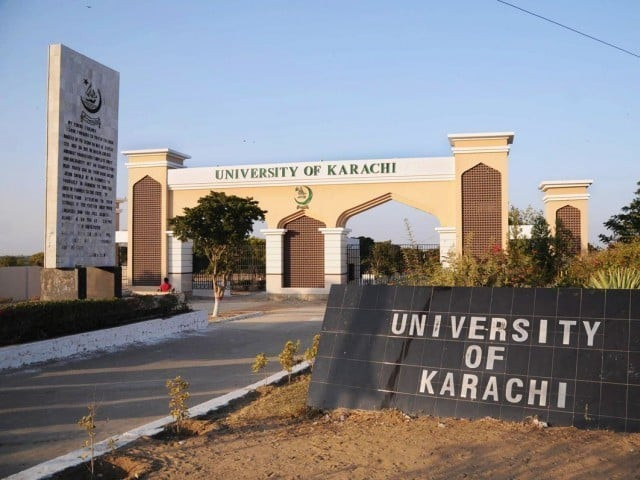Scientists, scholars discuss technological developments
More than 45 shortlisted research papers will be presented at the two-day conference

PHOTO: FILE
The ICISCT'19 also aimed at providing a premier interdisciplinary platform for researchers, practitioners and educators to present and discuss the most recent innovations, trends, and concerns as well as practical challenges encountered and solutions adopted in the field of information science and communication technology.
KU conference : Scholars call for research in social sciences
One of the keynote speakers, Dr Jonathan Andrew Ware, of faculty of Computing Engineering and Science at University of South Wales, United Kingdom, discussed the neural networks, a brief history and futuristic glance.
Neural networks have helped project Artificial Intelligence (AI) to the forefront of computational development. "The neural networks are an attempt to do things with a computer in a similar way to which our brain does things," he said.
Dr Ware said that while neural networks have been applied successfully to help solve a wide range of real world problems, their use has generated a reasonable amount of controversy. He shared that in essence they are black box in nature and when utilised with Big Data sources, that are not always representative of the 'complete picture,' can result in unintended consequences.
He also shed lights on innovative and dynamic initiatives aimed at stimulating interest in computing and its cognate disciplines amongst young people. He discusses strong and weak AI with the audience.
Ware said that today, faster computers, with more memory, can help analyse much more complex in real-time. "The image processing that we have looked at is achieved using algorithms. An algorithm is a step-by-step procedure for solving a problem or accomplishing some end".
He further said that now we have much bigger data sets and also have much faster processors so the basic idea has not changed. "Faster computers, with more memory, and more sophisticated techniques, means we can do even more complex processing."
Another keynote speaker, Dr Paulo P Monteiro of University of Aveiro, Portugal, focused on the topic of joint of reflectometry and communication systems for beyond 5G. He mentioned that the explosive growth of data traffic coupled with the explosion in the number of reflectometry systems, including Radars and LiDARs, in the coming years will provide new challenges. He said, "Apart from the cost and size reduction and improved spectrum efficiency, the integration of both technologies brings further benefits".
Steeped in tradition, KU looks to an even brighter future
Dr Bhawani Shanker Chowdhry, talking about living in the digital age perfection, said that unlike other great innovations that propelled humankind to greater heights, the internet, combined with advances in computational powers, has profoundly altered human behaviour.
KU Computer Science Department Chairperson Dr Muhammad Sadiq Ali Khansaid that over 220 research papers from 14 countries were received for the conference of which more than 45 were shortlisted and will be presented during the two days.
Published in The Express Tribune, March 10th, 2019.



















COMMENTS
Comments are moderated and generally will be posted if they are on-topic and not abusive.
For more information, please see our Comments FAQ